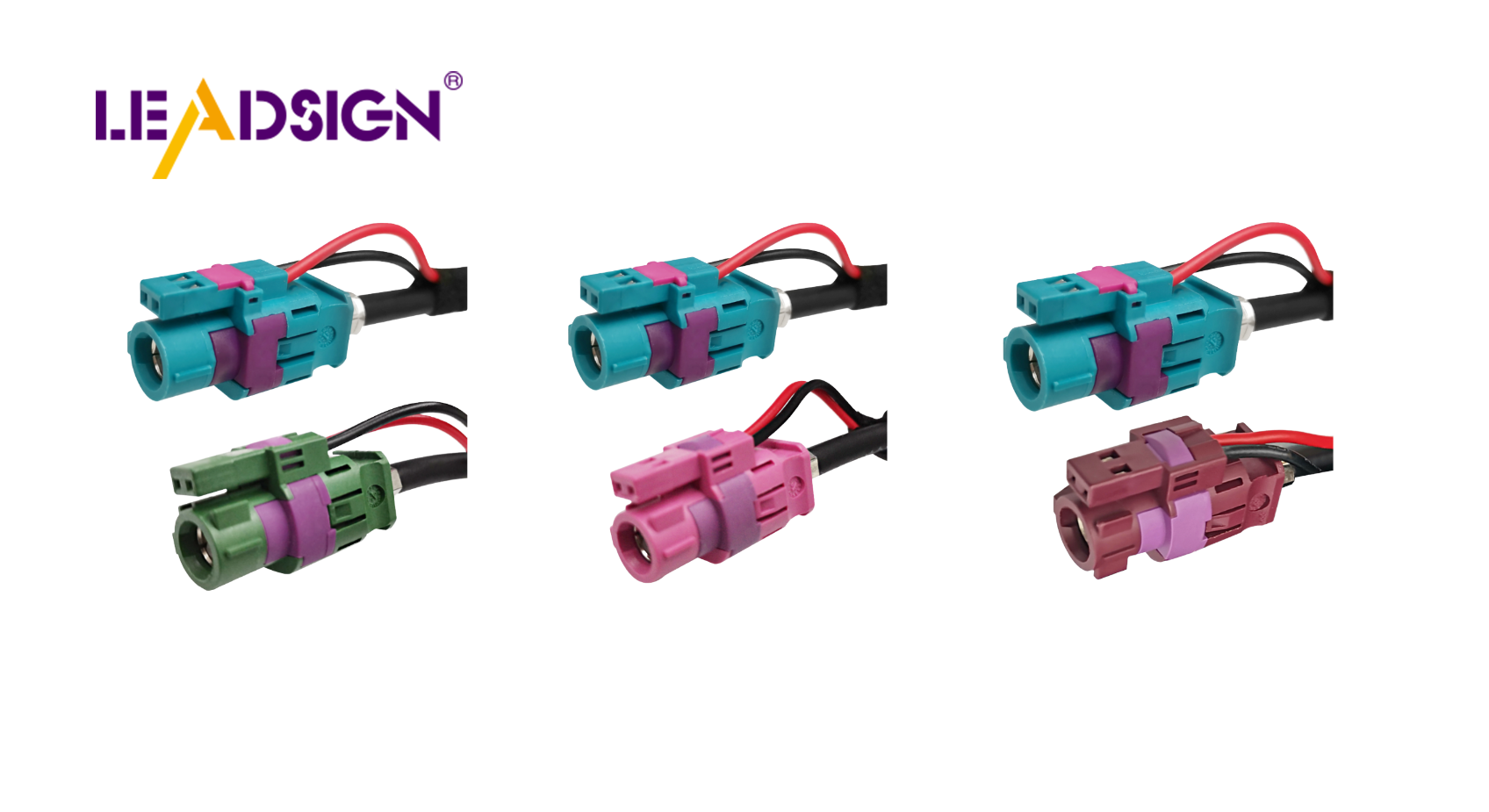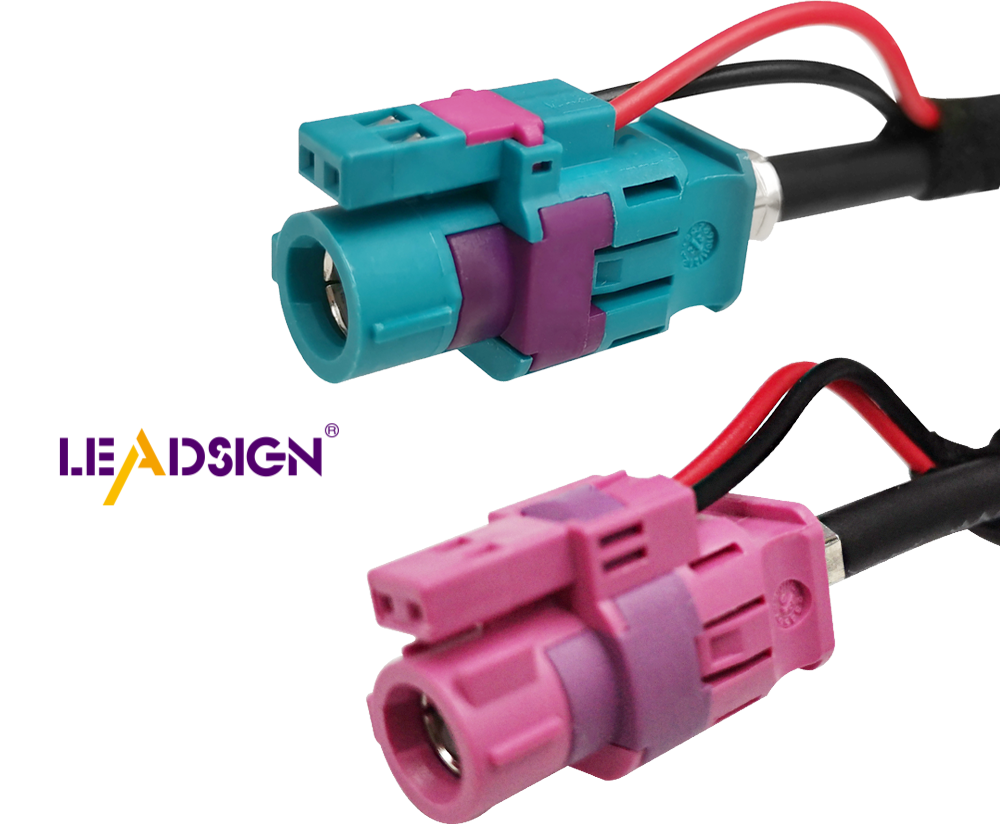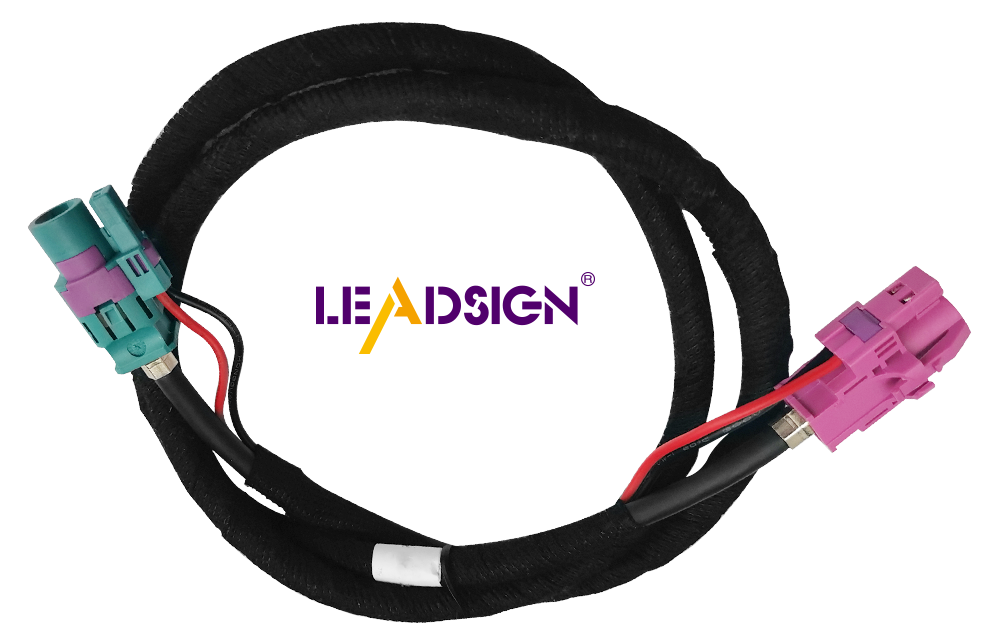What Are Automotive Ethernet Cables in Vehicle Cable Systems?

Vehicle cables are transforming how car systems connect. These cables facilitate fast data transfer, allowing various car components to communicate seamlessly. In modern vehicles, Ethernet technology is crucial, supporting features like autonomous driving and advanced infotainment systems. The market for vehicle cables is on the rise, potentially reaching USD 2.52 billion by 2023. This growth indicates that car cables will continue to improve in performance. In-car Ethernet enhances the driving experience by leveraging cutting-edge technology.
Key Takeaways
Automotive Ethernet cables are designed specifically for vehicles, enabling fast and reliable communication between car components, essential for features like autonomous driving and advanced infotainment systems.
These cables reduce the number of wires needed in vehicles, resulting in lighter cars that improve fuel efficiency and overall performance.
Automotive Ethernet supports high data transfer speeds, ranging from 10Mbps to 10Gbps, making it suitable for the increasing data demands of modern vehicles.
By utilizing established IP software, Automotive Ethernet cables are cost-effective and easier to implement compared to traditional automotive networks.
The technology is built to withstand harsh automotive conditions, ensuring durability and consistent performance despite vibrations, temperature changes, and electrical noise.
Automotive Ethernet is becoming the preferred choice for vehicle communication networks, paving the way for smarter, more connected cars in the future.
Implementing Automotive Ethernet enhances vehicle safety and functionality by facilitating real-time data exchange and supporting advanced driver-assistance systems.
Understanding Automotive Ethernet Cables

Definition and Purpose
Automotive Ethernet is a special type of Ethernet for cars. It is different from the Ethernet used at home or work. It is made to handle tough car conditions like shaking, heat changes, and electric noise. This technology helps car parts talk to each other quickly. It is used for things like music systems, self-driving, and helping drivers. By making data exchange fast and safe, it makes cars work better and safer.
Importance in Vehicle Systems
In today's cars, automotive Ethernet is very important. It connects car parts so they can talk easily. This tech cuts down on old cables, saving weight and money. It helps with smart systems, like car checks and safety features. It also supports self-driving cars. It can handle lots of data, like from cameras. This makes it a must-have in cars now. Its design keeps data safe and working well, even in tough spots. So, it is becoming the top choice for car networks, changing how car cables work.
Comparison with Traditional Automotive Networks
Differences in Technology
When you look at automotive Ethernet and old car networks, there are big differences. Old networks like CAN and LIN have been good for cars for a long time. But now, they can't handle what new cars need. Automotive Ethernet helps by moving data super fast. It sends data about 100 times quicker than a CAN bus. This speed is important for things like self-driving and music systems.
Automotive Ethernet can grow easily. As cars get more gadgets, you can add them without problems. This makes it great for vehicle communication networks. It lets different parts of the car work together smoothly, ready for future car tech. Plus, automotive Ethernet can handle data speeds from 10Mbps to 10Gbps, fitting many needs. This makes it perfect for new car technology.
Advantages of Ethernet over Traditional Networks
Automotive Ethernet has many benefits over old networks. First, it costs less. You save money on parts and setup, making it cheaper. It also uses IP software, which is already used in other places. This makes building it easier and cheaper too.
Another good thing is it makes cars lighter. Automotive Ethernet needs fewer cables, so cars weigh less. Lighter cars use less fuel and work better. Also, automotive Ethernet meets tough EMC and EMI rules, so it works well even in hard conditions.
Key Features and Specifications of Automotive Ethernet
Network Standards
Automotive Ethernet uses special rules for cars. These rules make sure it works well in vehicles. They change regular Ethernet for car use. Important rules are IEEE 802.3bw, IEEE 802.3bp, and IEEE 802.3cg. Each rule helps with different data speeds. This lets car networks be flexible. These rules help send data fast, which is needed for car systems.
The rules also solve car problems. They make sure Ethernet can handle car noise and electric issues. This makes it good for tough car conditions. Regular Ethernet might not work here. By following these rules, car Ethernet stays strong and works well.
Cabling Types and Efficiency
Car Ethernet uses special cables. These cables are strong and last long. The main type is a single twisted pair cable. It supports fast data and is light. This cable is key for car Ethernet. It helps with things like self-driving and music systems.
These cables are made for tough car conditions. They hold tight and connect well. This stops cables from coming loose. It keeps car parts talking to each other. Using these cables makes car systems better and more efficient.
Role of In-Car Ethernet in Modern Vehicle Systems

Evolution of Vehicle Electronics
Cars have changed a lot over time. At first, they used simple electric parts for lights and starting. As tech got better, cars added more complex electronics. This change made automotive ethernet important in new cars.
Automotive ethernet has grown to handle more data in cars. It began with simple links but now helps with self-driving and safety. It went from 10Mbps to 10Gbps speeds. This means cars can handle lots of data well. Strong protections keep these systems safe from sudden problems.
Increasing Role of Ethernet in Vehicles
Today, automotive ethernet is key for better driving. It's the top choice for car networks. It cuts down on old cables, making cars lighter. Lighter cars use less gas and work better.
Automotive ethernet helps with many cool car features. It connects car parts for things like checks and self-driving. This tech changes car networks with fast and real-time data. It's needed for things like new music systems and self-driving tech.
More connected cars need more in-car ethernet. This tech lets cars talk to outside networks for updates and better links. As cars keep changing, automotive ethernet will be even more important for car cables.
Automotive Ethernet cables are great for new cars. They cut down on old wires, making cars lighter and cheaper to connect. This tech helps with cool stuff like self-driving and music systems, making driving more fun. As car tech gets better, these cables will be key for better and safer car talks. Future cars will be smarter and more linked because of this smart network idea.
What is Automotive Ethernet?
Automotive Ethernet is a special kind of Ethernet for cars. It helps car parts talk fast, like music systems and driver aids. Unlike home Ethernet, it handles car shakes and heat changes.
Why Choose Automotive Ethernet?
Pick Automotive Ethernet for good and fast data sharing in cars. It helps with quick talks, needed for things like self-driving. This tech makes sure all car parts talk well, boosting safety and work.
How Does Automotive Ethernet Differ from Traditional Networks?
Automotive Ethernet is faster than old networks like CAN and LIN. Old ones worked well but can't keep up now. Automotive Ethernet gives the speed and change needed for new car tech.
What Are the Benefits of Using Automotive Ethernet?
Using Automotive Ethernet has many perks. It cuts cables, making cars lighter and saving fuel. It also saves money by using known IP software. Plus, it meets tough rules, working well in hard spots.
What Are the Key Features of Automotive Ethernet?
Automotive Ethernet has special rules like IEEE 802.3bw and others. These rules make it work well in cars, handling speeds from 10Mbps to 10Gbps. The cables are strong and light, moving data fast.
How Does Automotive Ethernet Enhance Vehicle Systems?
Automotive Ethernet helps car parts talk easily. It supports smart systems like checks and safety. It's key for self-driving, handling lots of data from sensors and cameras smoothly.
What Role Does Automotive Ethernet Play in Modern Vehicles?
In today's cars, Automotive Ethernet is key for better driving. It links car parts, helping with real-time data and outside links. As cars get smarter, Automotive Ethernet's role grows.
How Does Automotive Ethernet Impact the Automotive Wiring Harness?
Automotive Ethernet makes car wiring simpler and lighter. It cuts wires, making the harness easier and better. This saves money and boosts how cars work.
See Also
Improving Automotive Data Flow With Innovative Connectors And Cables
Boosting Data Transfer: Significance of Fast Automotive Connectors
Upgrading Automotive HSD Systems Through USB Integration
Improving Automotive Data Transfer Using FAKRA PCB Connectors

